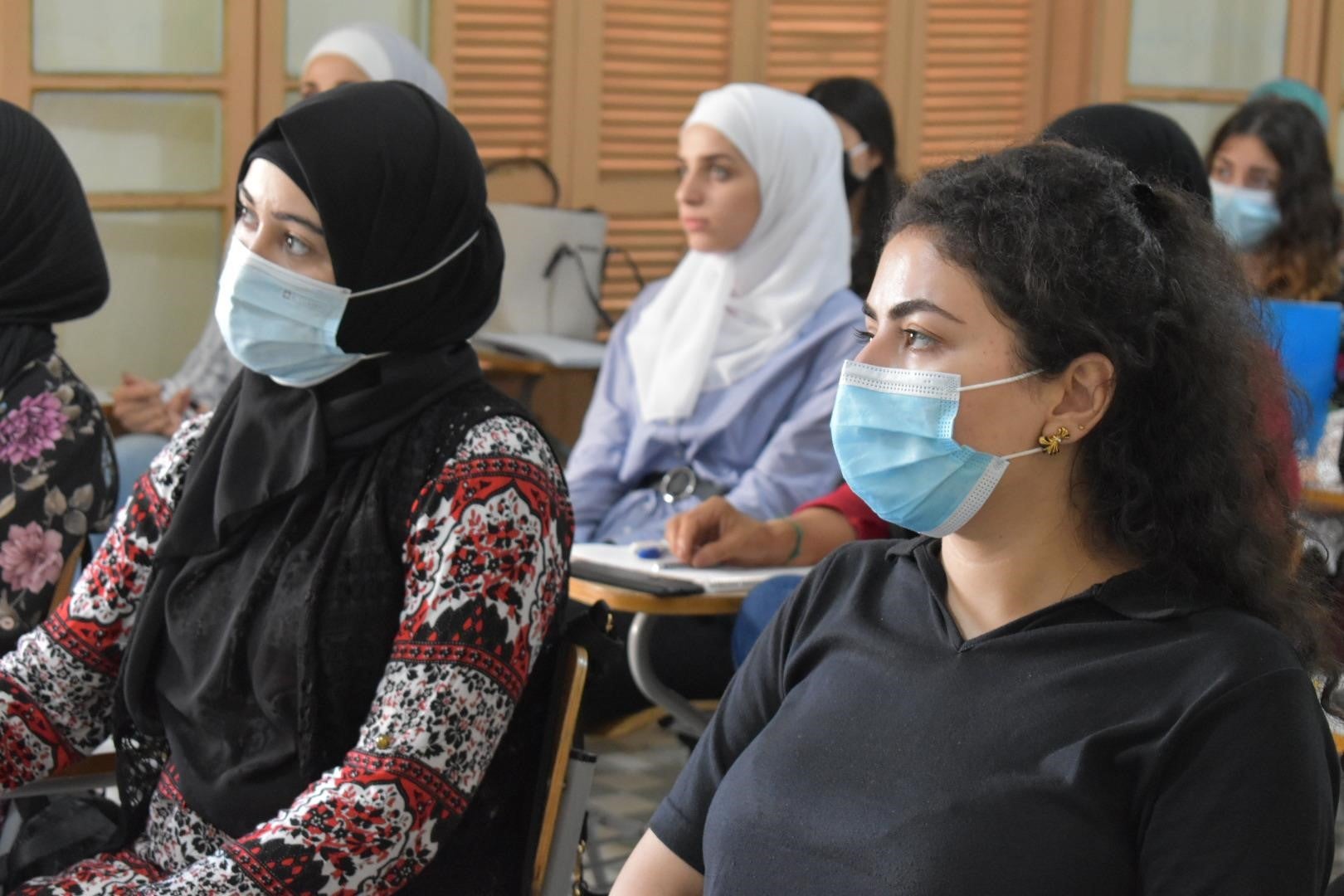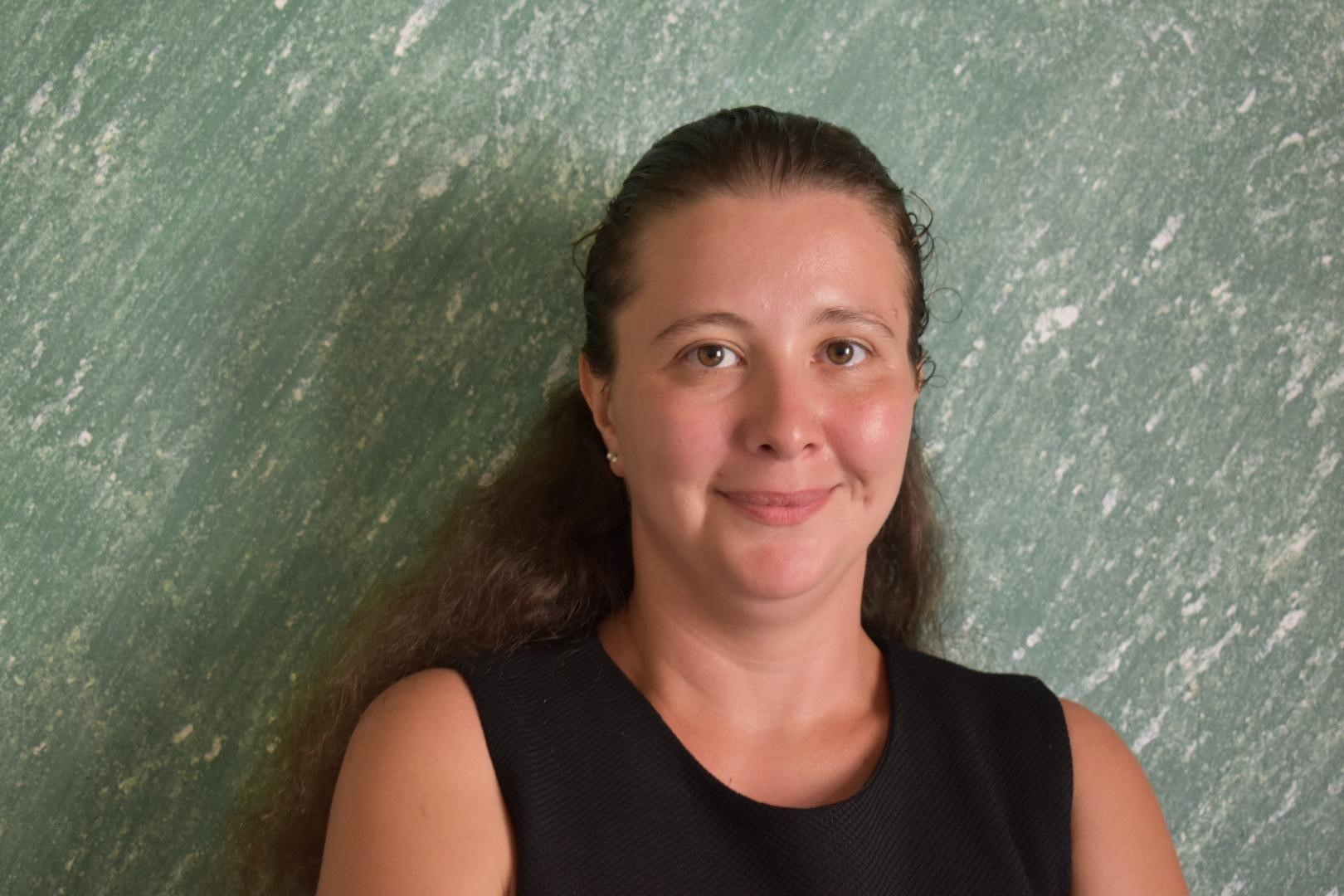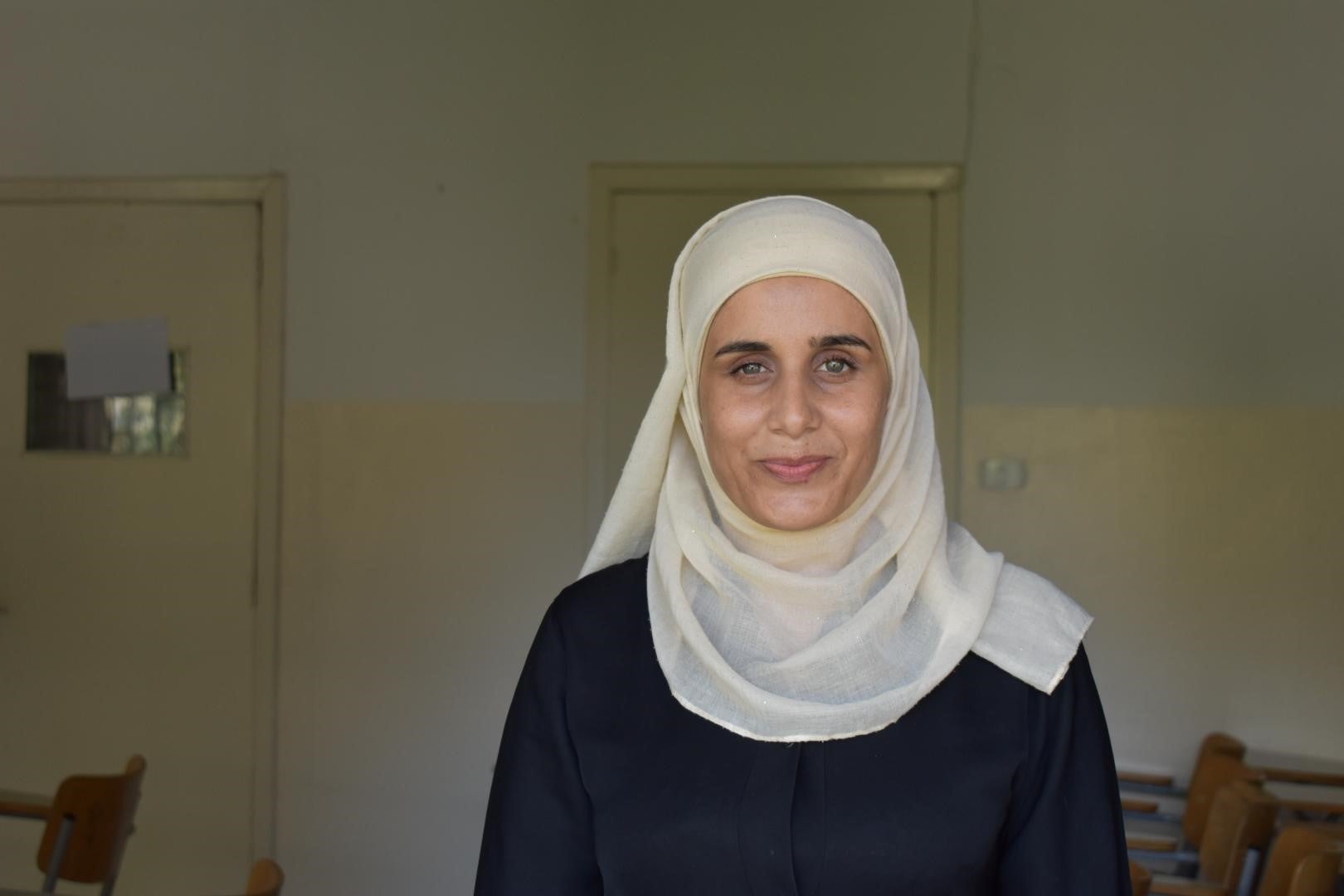Two years after the Beirut blast, women and girls train as nursing aides to help face the ongoing crisis
Date:
Two years after the deadly explosion that hit the Beirut Port on 4 August 2020, killing more than 200 people and displacing more than 300,000 men and women, people’s lives, including those of women and girls residing in the affected areas, are still severely impacted. To address the emerging needs of affected women and girls living in vulnerability, UN Women partnered with Mouvement Social, a national NGO, to provide vocational and life skills training for affected women as part of the “Emergency Livelihoods for Affected Marginalized Populations in the Beirut Explosion Area” project implemented jointly with the United Nations Children's Fund (UNICEF) and generously supported by the Government of Austria.

Rita Habib, 32, worked as a caretaker to the elderly to support her four children and herself after her divorce. On 4 August 2020, she was caring for a patient in an apartment in Nebaa (4.5 km from the Beirut Port) when she heard a deafening sound. Rushing upstairs to see what happened, she was shocked by the damage and fog. She recalls that, “Everything shattered and broke around me. My first instinct was to run home to check up on my children. Luckily, they were not hurt, but the house was greatly affected. Then, I made sure my patients were okay and I provided them with their treatments.”

Even though she was physically unharmed, Rita was distraught listening to the stories of the victims. “I lost friends who were working their shifts at hospitals nearby. Other friends lost their children, parents, or loved ones. We all lost the feeling of safety.”
Occurring during Lebanon’s economic and financial crisis, one of the world's worst in the last 150 years, the Beirut blast exacerbated an already difficult situation for many people living in Lebanon. A UN Women assessment highlighted that almost 50% of the households in the explosion-affected area self-identify as female-headed households and these were more likely to report medical care as their primary need.
After a friend told Rita about Mouvement Social’s vocational training and employment programme, she joined the nursing aide vocational training. “Even though I worked as a private nurse for two years, I lacked a lot of medical knowledge and had not been able to afford to enroll myself in nursing school,” she says. “Through the training learned how to draw blood, inject needles and do intravenous (IV) therapy, clean wounds, undo stitches, and apply cardiac catheterization,” she explains. “I also met people from different backgrounds. It made me realize that a lot of people, like me, were surviving hardships.”
After the training Rita began working at the Dispensary of Makassed Hospital in Qasqas, Beirut. “I am very happy with this opportunity and cannot wait to share what I have learnt with colleagues.”

For another student in the nursing classes, Maha Thamen, 30, a Syrian refugee with six children and a sick husband, the training that she enrolled in allowed her to bridge her skill gaps.
Maha was searching for an opportunity to make ends meet and, at the same time, was helping her seven year-old son overcome the trauma of the Beirut Port explosion. She explains, “My son was at the nearby fruits and vegetables store in Bourj Hammoud, 4.5 km from the Port, when the explosion happened. After it, he developed a chronic urinary reflux condition.”
When Maha started the nursing aide classes, she knew nothing about medical care. “I am so grateful that, through this training, I found a passion for helping others. The classroom has been a safe space to learn, grow, and meet wonderful people.”
Since the COVID-19 outbreak Lebanon’s nursing sector – a sector dominated by women - has been in deep crisis. The training UN Women is providing aims, in addition to supporting individuals affected by the explosion, to support the nursing sector by providing nursing aides with quick upskilling and additional income.
Over the last six months, Maha learned how to provide health care and medical support to patients in a medical care facility for elderly, disabled, mentally ill, and injured patients.
Maha is now preparing to begin work at a shelter for the elderly in Bourj Hammoud, where she will assist older people with daily tasks and medical needs. “My dream is to enroll my children back in school. We had to take them out because of the poor living conditions, but now I am saving up, so they get a proper education and future.”
Salha Nassar, Livelihood Programme Coordinator at Mouvement Social, explains that this training helped women and girls to feel more confident. “It allowed them to find a career path and a decent job,” she says.
Mouvement Social continues their search for job placements for the women and girls who graduated from their trainings in July. “Employment offers one entry point for independence and security. We hope that the work we are doing can grow at scale, to support women across Lebanon to enter the workforce, contribute to the rebuilding of the economy, and to their own lives and that of their families,” Rachel Dore-Weeks, Head of UN Women Lebanon.